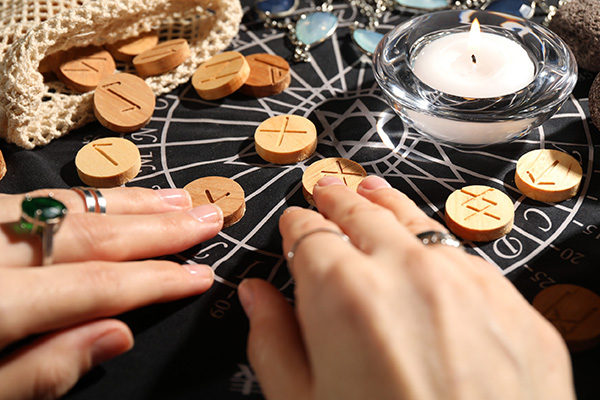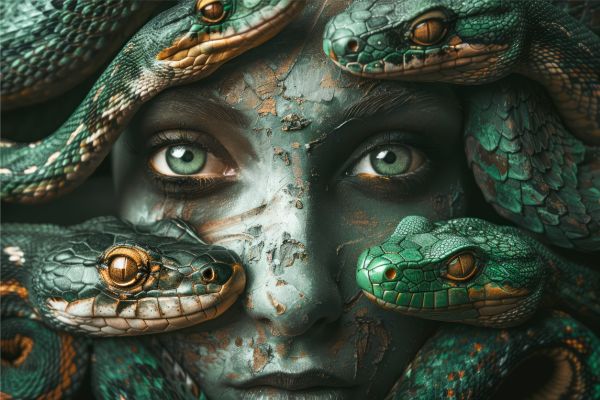intuition
Learning To Trust Your Inner Truth
 Have you ever noticed that whenever you’re really enjoying what you’re doing, it’s as if there’s an amazing energy flow or undercurrent carrying you along?
Have you ever noticed that whenever you’re really enjoying what you’re doing, it’s as if there’s an amazing energy flow or undercurrent carrying you along?
In these magical moments it feels as if the universe itself is moving with you, effortlessly aligning circumstances, people, and opportunities in your favor.
Don’t you wish you could live like this all the time? Imagine a life where every decision you make feels right, where your inner compass is so attuned to your truth that you rarely second-guess yourself.
Unfortunately, we too often worry about what others might think of us, or we choose the practical path – the road most traveled. We fall into the trap of following the opinions of others instead of tuning in and listening to our own inner guidance.
The fear of rejection or failure too often looms large, keeping us tethered to a path that feel safe but uninspiring. We convince ourselves that following our soul’s calling is a luxury rather than a necessity.
Following your inner truth is not selfish. Following the flow of what is true for you also doesn’t mean you’re shirking your responsibilities. It simply means that you are choosing, moment by moment, what feels right for your soul.
Society bombards us daily with standards and our families with expectations of what’s right and acceptable, yet how often do we stop and do a self-check-in? How often do we ask ourselves, “Is this really what I want?” instead of “Is this what I’m supposed to want?”
The Sacred Invitation Of A Spring Renewal
 With the first delicate buds unfurling and the air perfumed with the invigorating scent of nature’s reawakening, Spring has officially arrived. This sacred season carries with it the powerful energies of change, whispering to us of transformation, renewal and new beginnings.
With the first delicate buds unfurling and the air perfumed with the invigorating scent of nature’s reawakening, Spring has officially arrived. This sacred season carries with it the powerful energies of change, whispering to us of transformation, renewal and new beginnings.
But as exhilarating as change can be, it often comes with uncertainty, excitement, and sometimes even fear. We find ourselves at a crossroads between the comfort of the known and the vast potential of what lies ahead.
During the winter months, we instinctively retreated inward — both physically, as we sought warmth from the cold, and spiritually, as we turned our awareness inward to reflect, heal, and dream. Without even realizing it, we entered the sacred cave of our inner wisdom and nurtured the seeds of our soul’s deepest desires.
Now, as the earth awakens and the air becomes warmer, so does the essence of our being, ready to give birth to something new and profound.
Although you may not fully understand what is unfolding within you, your soul is always aware. It has been preparing you for this moment, nurturing the visions and intentions that you have been quietly cultivating in the silence of winter.
Sometimes new beginnings manifest as external changes — a career change, a move to a new home, or new relationships. Other times they unfold as inner changes — an awakening of self-love, a renewed sense of purpose, or a deepened spiritual connection.
Rune Forecast For The New Solar Year 2025
 As the Sun moves into Aries, we welcome a new solar year full of transformation, movement and empowerment. The shift to Aries signals new beginnings, renewed energy, and the courage to take action.
As the Sun moves into Aries, we welcome a new solar year full of transformation, movement and empowerment. The shift to Aries signals new beginnings, renewed energy, and the courage to take action.
Aries, the first sign of the zodiac, embodies the courageous essence of initiation, signaling a time to embrace new possibilities and harness our personal power.
This period marks a cosmic invitation to pursue new beginnings, to align with the flow of change, and to step boldly into action.
The energy of Aries, infused with renewed vitality and determination, encourages us to set clear intentions, embark on transformative endeavors, and move forward with unwavering confidence.
Whether we are initiating projects, fostering personal growth, or seeking clarity about our life’s direction, Aries offers us the courage to navigate life’s transitions with purpose.
To gain insight into the collective energy shaping the journey ahead, I turned to the ancient wisdom of the runes. The four runes I cast – Raidho, Laguz, Uruz, and Kenaz – present a profound narrative.
Raidho speaks of movement and life’s journey; Laguz reflects emotional flow and intuition; Uruz symbolizes inner strength and vitality; and Kenaz illuminates the path ahead with enlightenment and creativity.
Together, these runes guide us to embrace change with resilience and to embrace the transformative year that unfolds before us.
Overcome Fear, Doubt, And Anxiety With Psychic Insight
 Fear, doubt, and anxiety have become common emotional obstacles that many of us face in our daily lives. They can cripple our decision-making abilities, cloud our judgment, and prevent us from reaching our full potential.
Fear, doubt, and anxiety have become common emotional obstacles that many of us face in our daily lives. They can cripple our decision-making abilities, cloud our judgment, and prevent us from reaching our full potential.
Whether it’s fear of the unknown, doubt about our abilities, or anxiety about what the future holds, these emotions can be overwhelming. Psychic reading offers a unique approach to navigating and overcoming these challenges, and we are here to guide you every step of the way.
Fear, doubt, and anxiety are often rooted in past experiences, limiting beliefs, and an inability to see beyond the present moment. Fear can be a natural response to real threats, but in many cases it’s just a mindset that arises when we feel uncertain about something that hasn’t even happened yet.
Doubt often stems from a lack of confidence or trust in our choices. Anxiety, on the other hand, manifests as constant worry or unease, sometimes without a clear cause, and can interfere with daily life and well-being.
These emotions often create a cycle of negativity, where one awful feeling feeds into the next, leaving you trapped in a state of uncertainty. Fortunately, a psychic reading can provide the clarity and perspective needed to break free from this cycle.
Psychic reading is a powerful way to gain deeper insight into your emotions, thoughts, and life circumstances. Gifted psychics are able to access information that is often hidden from your own conscious awareness. Revealing this information can help you better understand the root causes of your fear, doubt, and anxiety, and provide guidance on how to release them. Continue reading
The Mystical Year Of The Yin Wood Snake
 As we settle into 2025, the energy of the Yin Wood Snake begins to take shape, revealing its unique rhythm and influence.
As we settle into 2025, the energy of the Yin Wood Snake begins to take shape, revealing its unique rhythm and influence.
While the excitement of the Chinese Lunar New Year celebrations may have faded, the true essence of the year is beginning to unfold.
Now is the perfect time to align with the energies of the Wood Snake, harness its mystical power, and set a clear, intentional path for the months ahead.
The Year of the Wood Snake brings a harmonious fusion of intuition, mystery and steady growth.
The Snake, known for its wisdom and transformation, merges with the nurturing and grounding essence of the Wood element this year, fostering patience, adaptability, and a deep connection to our spiritual and emotional roots.
Unlike the impulsive Fire Snake or the analytical Metal Snake, the Wood Snake encourages thoughtful progress and long-term vision, making 2025 an ideal year for meaningful evolution.
In many cultures, the Snake symbolizes rebirth, wisdom and mystery. Its ability to shed its skin represents the release of outdated beliefs, limitations, and habits, clearing the way for renewal. This year invites you to embrace transformation, trust your intuition, and align with the subtle yet powerful energy of the Snake as you enter a year of profound personal and spiritual growth.
An Unforgettable Valentine’s Day With Venus In Pisces
 Valentine’s Day always has an air of magic about it, but this year it has an extra layer of fateful intensity. The stuff of fairy tales and romance novels!
Valentine’s Day always has an air of magic about it, but this year it has an extra layer of fateful intensity. The stuff of fairy tales and romance novels!
With Venus, the planet of love and beauty, currently transiting dreamy and ethereal Pisces, love takes on a soulful, almost otherworldly quality.
The energies of love and romance are heightened under this transit, making every interaction feel much deeper, more meaningful, more destiny and fate. Our love lives are infused with an unprecedented sense of compassion, emotional depth, and spiritual connection.
Romantic intuition is heightened during this time, and connections feel more like destiny than chance. The energy of attraction shifts from the physical to the ethereal, making love feel transcendent, poetic, and deeply moving.
Whether you’re in a relationship or meeting someone new, expect emotions and passion to run deep. Every new interaction will be special, every glance charged with meaning, and every intimate moment may feel like divine orchestration.
If you find yourself unexpectedly drawn to someone this Valentine’s Day, or in the coming weeks, trust that it’s not just coincidence. Venus in Pisces is busy weaving a tapestry of soul connections, heightened intuition, and chemistry that transcends the ordinary. This transit is a time when love is more than an experience — it is transcendental.
A word of caution, though. With the passion of Venus and dreamy nature of Pisces, it’s also important to stay grounded during this transit. The enchantment of Venus in Pisces can lead to unrealistic expectations or longing for unattainable love. If you find yourself caught up in a romantic fantasy or longing for an unavailable person, take a step back and get back in touch with reality.
Signs Your Partner Might Be Cheating
 Is your partner cheating on you? Is your spouse having an affair? Should you believe their version of events? Is there a noticeable change in their behavior or routine? Do you sense a lack of trust or transparency in your relationship?
Is your partner cheating on you? Is your spouse having an affair? Should you believe their version of events? Is there a noticeable change in their behavior or routine? Do you sense a lack of trust or transparency in your relationship?
These types of suspicions can create a wall in relationships that is almost impossible to break down – especially if they turn out to be unfounded. When the fears are true, however, infidelity has the power to completely shatter trust and even destroy a family.
Over the years, I’ve done countless relationship readings for people from all walks of life, and one theme comes up again and again: infidelity.
In these readings, I have noticed certain patterns of behavior that consistently emerge when someone is hiding an affair. These signs aren’t just guesses or speculation-they are recurring clues that I’ve seen confirmed time and time again by the lived experience of my clients.
I don’t claim to have all the answers, but I’ve seen enough to know when something isn’t right. Whether it’s someone’s energy, their words, or the tears they shed when describing what they’ve noticed, these signs often speak louder than the lies people tell.
But knowing the truth is only part of the journey. Once you uncover it, you must be willing to act and not settle for disrespect or dishonesty.
If you’ve been feeling uncomfortable or insecure in your relationship, recognizing these signs early can help bring clarity to your situation and save you a lot of disappointment and heartache. Many of my clients who didn’t take it seriously at the time can vouch for this today.